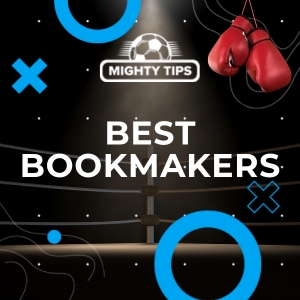
Remember when people laughed at the idea of video game players being called athletes? Those days are long gone. Today, NBA stars invest millions in esports teams, NFL players stream on Twitch, and Olympic champions openly admire professional gamers. The change didn’t happen overnight, but it’s real – and the numbers prove it.
Shaq Says It Like It Is: “Yes, You Guys Are Athletes”
Shaquille O’Neal doesn’t mince words. When someone asked him if esports players are athletes, his answer was crystal clear: “Yes, you guys are athletes. I want to commend you guys, and I’m proud of you guys.” Coming from one of basketball’s greatest players, that’s not just an opinion – it’s validation.
Shaq broke it down simply: “15 percent of the game is physical and everything else is mental.” He gets it. He knows esports careers last about 5-6 years, just like in the NBA or NFL. The mental grind, the pressure, the short career window – it’s all there.
The respect goes both ways, though. When Noah Lyles, the world’s fastest sprinter, named League of Legends legend Faker as his favorite athlete in December 2023, sports fans did a double-take. An Olympic gold medalist choosing a gamer over traditional sports stars means that you already know things have changed.
NBA Stars Put Their Money Where Their Mouth Is
Talk is cheap, but money talks louder. Michael Jordan invested $26 million in aXiomatic Gaming in 2018, which bought a controlling stake in Team Liquid. Think about that – the greatest basketball player ever betting big on esports.
But he’s not alone. In 2021, Karl-Anthony Towns signed with Luminosity Gaming. Gordon Hayward doesn’t play games casually – he competed in IGN’s StarCraft 2 Pro League and invested in Beastcoast. That means these guys see it as the future.
Rick Fox, the three-time NBA champion, bought his own team (Echo Fox) after watching a sold-out Madison Square Garden crowd go wild for League of Legends. “I knew it was the next generation,” he said. When you see 13 million people watching a single match across 190 countries, you understand why.
Esports Betting Hits the Mainstream – And Athletes Notice
The betting sphere tells its own story. Esports betting hit $2.5 billion in revenue in 2024 and will reach $2.8 billion in 2025. That’s not pocket change, but a legitimate industry. What’s interesting is how people bet differently on esports. The average esports bet is €29, while football bets average just €5. Esports fans bet less often but bet bigger when they do.
All because they know their games inside out. Nearly half of all Counter-Strike 2 bets happen live during matches. Fans aren’t just guessing – they’re making calculated decisions based on deep game knowledge. Modern Ethereum esports betting sites have become especially popular with tech-savvy fans who seek transparency and fast payouts.
The reason for that is secure transactions through blockchain technology, multiple betting markets, and live streaming of major tournaments. For a generation that grew up with tech, betting with Ethereum just makes sense – it’s fast, clear, and you get your winnings instantly.
The Training Grind Matches Any Sport
What surprises traditional athletes most is that esports players train 8-12 hours daily. Well, that’s not playing for fun – that’s structured practice with coaches analyzing every move. Teams such as the Toronto Defiant work 60-hour weeks, review game footage, and have dedicated chefs preparing meals.
A 2022 study found that top esports players need the same mental stamina as Olympic athletes. The same sports psychology techniques that help NBA players also work for League of Legends pros. When Tundra Esports hired a sports psychologist before The International 11, they won the whole tournament. But could it be coincidence? Hardly.
Professional gamers deal with the same pressures as well. Prize money dropping, younger players coming up, constant travel for tournaments – it’s the same story traditional athletes know well. Johnathan “Fatal1ty” Wendel retired at 26 after winning 12 championships. In esports, that’s normal. The average Call of Duty League player is 22 – and in Overwatch League, only 20.
Athletes Gaming at the Highest Level
LeBron James relaxes with Madden and a glass of wine, while Patrick Mahomes said if he wasn’t playing NFL, he’d be a professional esports player. Devin Booker won the NBA 2K Players Tournament, and Olympic gymnast Stephen Nedoroscik ranks in the top 1.7% of Rocket League players globally.
But these aren’t casual gamers – Paul George claims he’s the best NBA 2K player in the league and proves it by destroying fans online. Gordon Hayward once said he was the world’s best Fortnite player during his injury recovery. When athletes compete, they compete – doesn’t matter if it’s on a court or a screen.
The Future Is Already Here
Universities now have esports scholarships, and the U.S. government recognizes esports players as athletes for visa purposes. The Sacramento Kings built their arena with esports in mind. Major networks broadcast tournaments.
Both groups understand dedication, sacrifice, and the pursuit of perfection. Both deal with short careers, intense pressure, and constant competition. Both need quick reflexes, strategic thinking, and mental toughness.
But professional athletes see it even more clearly: excellence is excellence, whether you’re shooting basketballs or clicking heads in Counter-Strike. Champions recognize champions, period.


